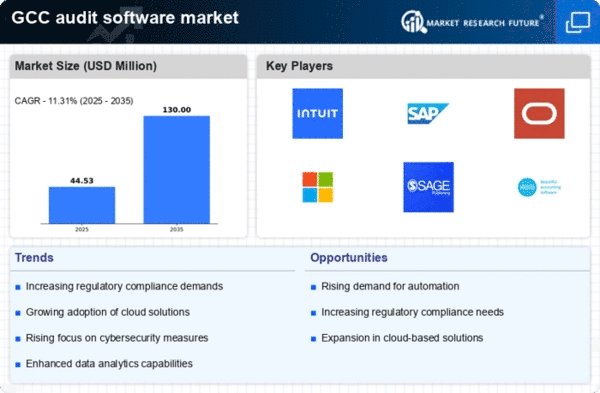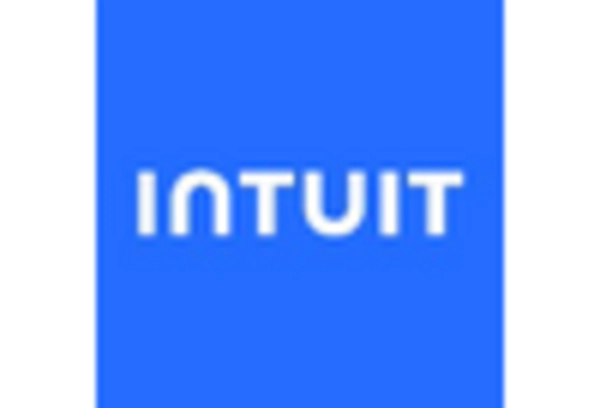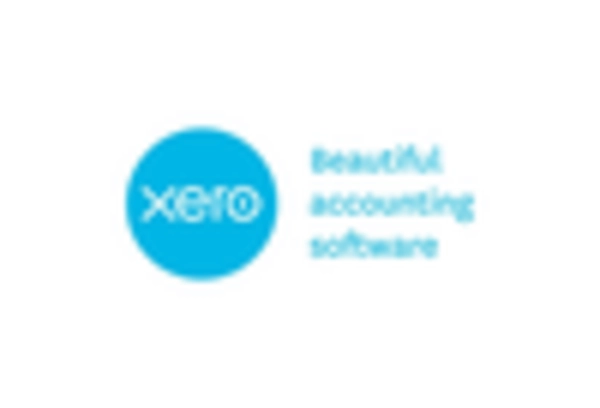Rising Demand for Transparency
The audit software market is experiencing a notable increase in demand for transparency among organizations in the GCC. This trend is driven by the need for businesses to demonstrate accountability and integrity in their financial reporting. As regulatory bodies impose stricter compliance requirements, companies are compelled to adopt audit software solutions that provide clear visibility into their financial processes. The market was projected to grow at a CAGR of approximately 12% over the next five years, reflecting the urgency for organizations to enhance their auditing capabilities. Furthermore, the emphasis on transparency is not only a regulatory requirement but also a competitive advantage, as stakeholders increasingly favor companies that prioritize ethical practices. Thus, the rising demand for transparency is a significant driver in the audit software market, compelling firms to invest in advanced solutions that facilitate thorough and reliable audits.
Regulatory Compliance Pressures
Regulatory compliance pressures are a significant driver in the audit software market, particularly in the GCC region. As governments and regulatory bodies enforce stricter compliance standards, organizations are compelled to adopt audit software solutions that facilitate adherence to these regulations. The need for accurate reporting and timely audits has never been more critical, as non-compliance can result in substantial fines and reputational damage. The audit software market is expected to expand by around 10% as businesses seek to mitigate compliance risks through effective auditing practices. This pressure not only drives the demand for audit software but also encourages continuous improvement in auditing processes. Thus, regulatory compliance pressures play a crucial role in shaping the landscape of the audit software market, pushing organizations to invest in reliable solutions that ensure compliance.
Increased Focus on Data Security
In the current landscape, the audit software market is witnessing an increased focus on data security, particularly within the GCC. As organizations handle sensitive financial information, the risk of data breaches and cyber threats has become a pressing concern. Consequently, businesses are prioritizing the implementation of robust audit software that incorporates advanced security features to protect their data. The market for audit software is projected to grow by approximately 15% as companies invest in solutions that ensure compliance with data protection regulations. This heightened emphasis on data security not only safeguards organizational assets but also builds trust with clients and stakeholders. Therefore, the increased focus on data security is a pivotal driver in the audit software market, compelling firms to adopt solutions that mitigate risks associated with data vulnerabilities.
Growing Importance of Real-Time Auditing
The growing importance of real-time auditing is emerging as a key driver in the audit software market. Organizations in the GCC are increasingly recognizing the value of conducting audits in real-time to enhance decision-making and operational efficiency. This shift towards real-time auditing allows businesses to identify discrepancies and address issues promptly, thereby minimizing potential risks. The market for audit software is anticipated to grow by approximately 11% as firms seek solutions that enable continuous monitoring and instant reporting. This trend reflects a broader movement towards proactive management practices, where timely insights are crucial for maintaining financial integrity. Consequently, the growing importance of real-time auditing is a vital driver in the audit software market, encouraging organizations to adopt innovative solutions that support dynamic auditing processes.
Technological Advancements in Audit Tools
Technological advancements are significantly shaping the audit software market, particularly in the GCC region. Innovations such as artificial intelligence (AI) and machine learning (ML) are enhancing the capabilities of audit software, allowing for more efficient data analysis and risk assessment. These technologies enable auditors to process vast amounts of data quickly, identifying anomalies and potential fraud with greater accuracy. The integration of AI-driven tools is expected to increase the efficiency of audit processes by up to 30%, thereby reducing the time and resources required for audits. As organizations seek to leverage these advancements, the demand for sophisticated audit software solutions is likely to rise, driving growth in the market. Consequently, the continuous evolution of technology serves as a crucial driver for the audit software market, pushing firms to adopt innovative tools that enhance their auditing practices.
















